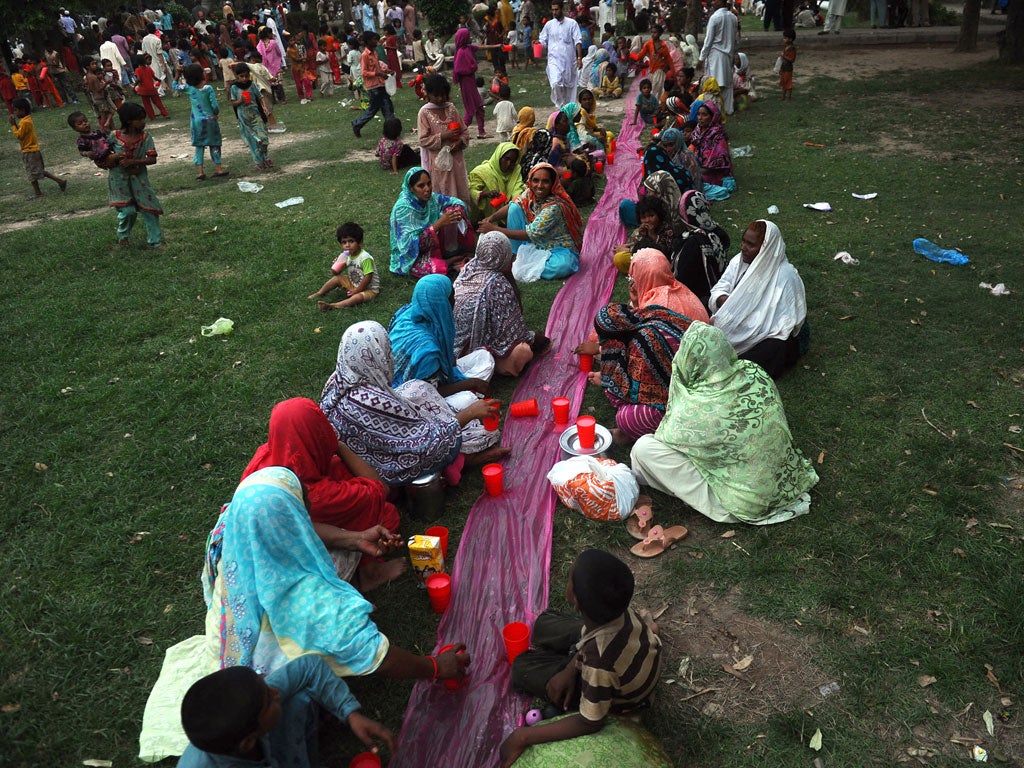Are women-only parks the answer to street harassment in Pakistan?
Lahore is following cities as diverse as London, Tehran and Moscow in introducing women-only facilities. But do 'gender ghettos' make women more or less free?

Pakistan’s second largest city Lahore is famous for its many gardens and historic buildings dating back to the Mughal and British colonial era. It is a city where the modern exist side by side with the traditional in unique and at times disturbing ways.
A few months back a new “women’s only” park opened in Lahore. The Fatima Jinnah Park, which is named after the sister of the founder of Pakistan, is spread over four acres and with walls seven feet high. It has its own jogging track, gymnasium and badminton court.
Since its opening the park has proven popular among local women living in the area. Some prefer such female-only spaces places out of religious faith or cultural preferences, others are held back from going out by their conservative-minded families. A more troubling issue, however, is those women who fear harassment from men, something which can be a real problem in Pakistan's public places. But whether creating segregated parks is the right solution is a contentious point. Some might argue it doesn’t address the core issue.
Lahore has long been known as the “city of gardens.” During the Mughal era many famous gardens were built here, some of which have survived to this day. Prominent among these is the Shalimar Gardens which were constructed by the Emperer Shah Jahan, who also built the Taj Mahal in India.
More recently a number of important chapters in Pakistan’s history have taken place in the parks of Lahore. School children in Pakistan are taught that it was in 1940 in Lahore’s Iqbal Park (then known as Minto Park) that a now famous political resolution was passed by the Muslim League calling for a separate homeland for the Muslims of the Indian Subcontinent. Almost half a century later in 1986 a young Benazir Bhutto returned from exile to the city of Lahore in a country which was under military dictatorship at the time. That day Bhutto addressed a crowd of millions - the majority of them men - who had come to greet herat the same Iqbal Park.
Yet beyond grandstanding political speeches or the more familiar family picnics, parks in Pakistan have on occasion been the scene of controversy stirred by pretty innocuous acts. Earlier this year a busybody host of a Pakistani morning show, Maya Khan, led a group of middle aged women into a park in the seaside city of Karachi to confront unmarried young couples for indulging in such “immoral” behaviour as sitting together and talking to each other.
As the camera rolled they were hounded with questions like “do your parents know your here?” and "Where is your marriage certificate?" Following the airing of the programme Ms. Khan was hit by a wave of criticism by viewers for behaving in a manner more akin to Taliban style vigilante, than a reputable journalist. She was eventually sacked by the channel (only to be hired by another, unfortunately).
Back in Lahore, after the popular success of the Fatima Jinnah Park, the local authority in the city is reportedly planning to build ten more women-only parks in the city. It may be a disturbing development to some, but Pakistan certainly isn’t alone in adopting such women-only initiatives. In Iran for example, in 2008 a similar women-only park was opened in Tehran which drew polarised reactions from different sections of society.
And in China there exists a controversial women-only car park and, among certain members of the Chinese Muslim minority, “women only” mosques where prayers are led by female imams. Even in the UK there has recently been a surge in popularity of “women only” taxis which are driven by female drivers and marketed specifically to women passengers.
Frankly, and particularly as a man, I am hesitant to express a strong opinion on the development of “women only” parks in Lahore one way or the other. If I criticize the initiative for pandering to the gender segregation lobby I know I would be confronted by the many local women who actually prefer to walk and exercise out of the sights of men. On the other hand if I say I support such an initiative as a choice women should be freely allowed to make for themselves then certain feminists might accuse me of being an apologist for gender apartheid in a patriarchal society. So in the end I rather prefer to quote Rumi who said: “The garden of the world has no limits, except in your mind.”

Join our commenting forum
Join thought-provoking conversations, follow other Independent readers and see their replies